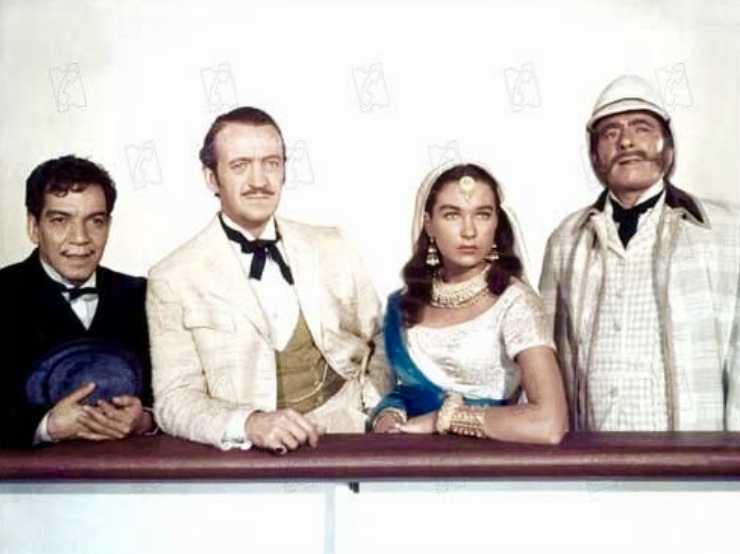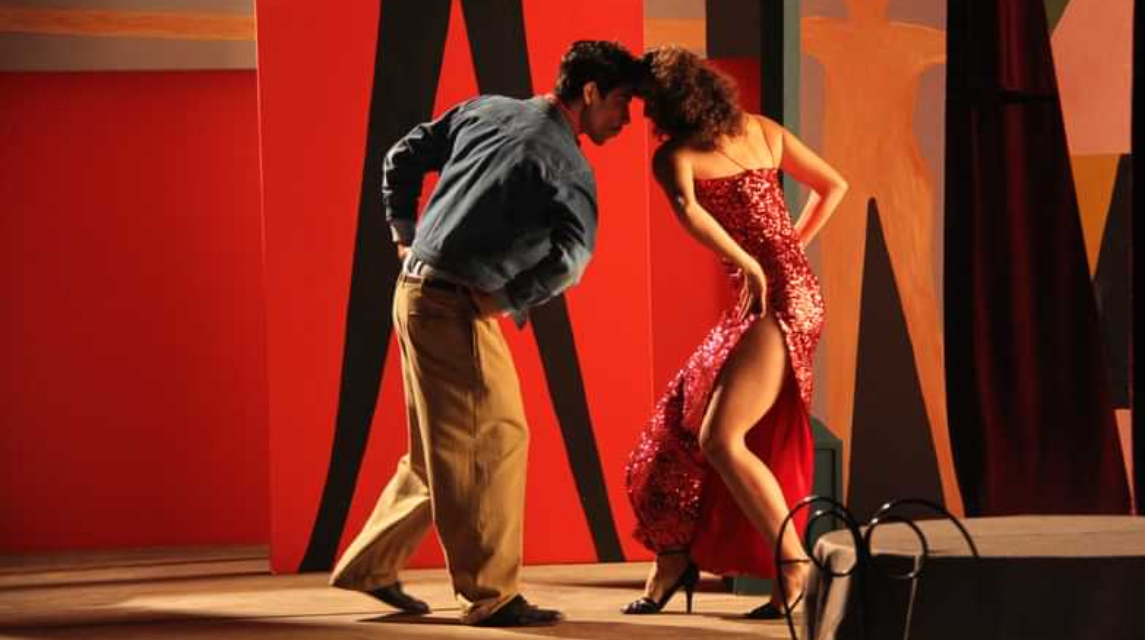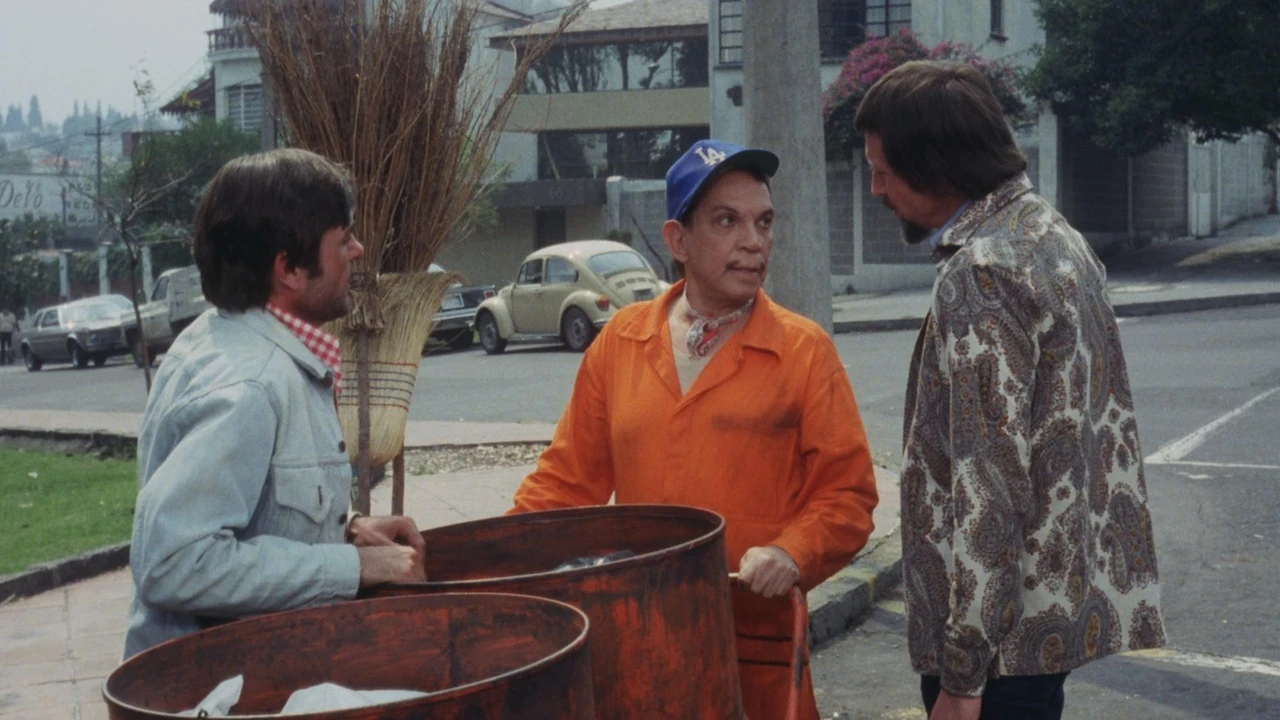Mario Fortino Alfonso Moreno Reyes was born on August 12, 1911 on the sixth street of Santa María la Redonda, in Mexico City, without knowing that he would become “Cantinflas”, a movie idol, who marked milestones in national and international history.
In the words of Ricalde Castro and Irving McKee, Cantinflas was “perhaps the most emblematic star of Mexican golden cinema.”
The actor, comedian and producer managed to captivate millions of viewers after embodying one of the most hilarious and unforgettable figures of the Latin American silver screen: Cantinflas. This emblematic character was a likeable young man with a crazy way of speaking (a mixture of colloquialisms and misused slang) who carried a piece of cloth over his shoulder that he called “gabardina”. His film debut was in 1936, and it brought him worldwide fame, especially among the Spanish-speaking public.
During his five-decade career, he received a Golden Globe Award for Best Actor for his role in the feature film Around the World in 80 Days (1956). He also received a star on the Hollywood Walk of Fame and a Golden Ariel for his career from the Mexican Academy of Motion Picture Arts and Sciences.
Mario Moreno Cantinflas, who in his youth had had several professions that had little to do with acting – boxer, shoemaker’s assistant, chemist and even bullfighter – died on April 20, 1993, at the age of 81, at his home in Mexico City. The most popular comedian in Spanish-language cinema left behind more than fifty films and made several generations laugh, who still remember him with a smile on their faces.
114 years after the birth of “El mimo de la gabardina” (the mime of the gabardina), let’s review some of his iconic films and how to watch them.
Ahí está el detalle (1940)

Directed by: Juan Bustillo Oro
Screenplay: Humberto Gómez Landero, Juan Bustillo Oro
Directed by Juan Bustillo Oro, this film is widely recognized as one of the comedian’s best and is considered one of Mexico’s most relevant cinematographic works. After two brief appearances in the titles, No te engañes corazón (1936) and El signo de la muerte (1938), Mario Moreno would present the character of Cantinflas for the first time, in a leading role, in Ahí está el detalle (You’re Missing the Point).
“A mix-up of names between a mad dog and a mobster” sets off a series of amusing entanglements involving a jealous husband, a nervous wife, a mischievous maid, a hopeless bum and a gangster.
The last scene of Ahí está el detalle is based on real events related to the trial of Mexican criminal Alvaro Chapa in 1925, which inspired Cantinflas’ way of speaking in this film, also known as “cantinfleada.”
In 1950, Ahí está el detalle was remade as Vivillo desde chiquillo, starring Manolín and Shilinsky.
Where to watch? ViX, Apple TV+.
Around the World in Eighty Days (1956)

Director: Michael Anderson
Screenplay: James Poe, John Farrow, S. J. Perelman
Around the World in Eighty Days is a 1956 American film based on the novel of the same name by French writer Jules Verne.
This 183-minute adaptation, ambitious filmmaker Michael Anderson at the helm, tells the story of English gentleman Phileas Fogg (David Niven), who bets half his fortune with his fellow Reform Club members that he will be able to make a trip around the world in 80 days.
In it, Cantinflas plays Passepartout, a Latin American immigrant and Phileas’ most faithful assistant. Together they embark on the most daring journey, which begins in England and continues through France, Spain, the Suez Canal, India, Hong Kong, Japan and the United States.
Multiple famous actors make small appearances, such as Marlene Dietrich, Buster Keaton, George Raft, Frank Sinatra, John Gielgud, Trevor Howard, Peter Lorre, Charles Boyer, Cesar Romero, and Spanish bullfighter Luis Miguel Dominguín.
Around the World in Eighty Days received critical acclaim and won five Oscars including Best Picture, Best Adapted Screenplay, Best Cinematography, Best Editing and Best Soundtrack. Cantinflas also won the Golden Globe Award for Best Male Performer in a Musical or Comedy.
Where to watch? Digital purchase/rent on Apple TV, Prime Video, Google Play and YouTube.
El Bolero de Raquel (1957)

Director: Miguel M. Delgado
Screenplay: Jaime Salvador
El Bolero de Raquel (Raquel’s Shoeshiner) is the comedian’s first color film and one of the most successful of his career. This time, Cantinflas plays a shoeshine boy who has decided to take care of his best friend’s son, who has recently passed away.
With a voracious hunger for progress and money to support the child, Cantinflas tries his luck in the most diverse jobs, from bricklayer, to lifeguard in Acapulco, to any opportunity that comes his way. Above all, he tries to satisfy the boy’s greatest desire: to have a ball, like his friends in the neighborhood.
This film contains one of the most memorable scenes of his career, in which the comedian dances Maurice Ravel’s Bolero with the flamboyant Mimi, played by Elaine Bruce.
Where to watch? ViX. Digital purchase/rent on Amazon Prime Video.
El Barrendero (1982)

Director: Miguel M. Delgado
Screenplay: Cantinflas, Isaac Díaz Araiza, Fernando Galiana
El Barrendero (The Street Sweeper) was Mario Moreno’s last feature film before his death in April 1993.
For his last film, Cantinflas chose to bring to life Napoleón Pérez García, known as “Don Napo”, a humble and honest street sweeper who cleans the city’s dirt while dancing, singing and flirting happily. However, his life changes when he becomes the only witness to the theft of a valuable work of art, and from that moment on he becomes the main target of criminals.
Where to watch? ViX. Digital purchase/rent on Claro video, Apple TV and Amazon Prime Video.
A legacy like few others
Cantinflas left as his epitaph “It seems that he is gone, but it is not true” and so it is, decades after his death, he continues to be an important part of Mexican and Latin American cultural heritage.
Although they are light comedies, Cantinflas‘ films offer a unique combination of social criticism and comic entertainment, often addressing social issues such as the plight of the working class, social inequality and corruption in certain institutions.
114 years after the birth of the Mexican film star, we still remember his legacy, characterized by his charisma on the big screen, his comedy and his commitment to the underprivileged.
If you want to know more about the life and work of this vibrant Mexican, we recommend watching the biographical film Cantinflas, directed by Sebastián del Amo in 2014.
Image: Iberia Airlines

